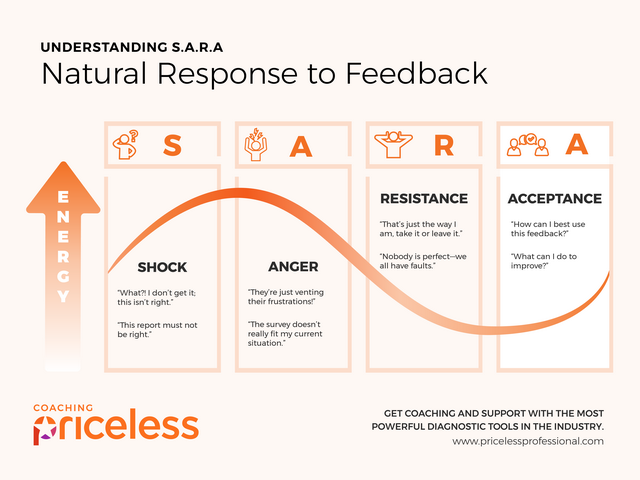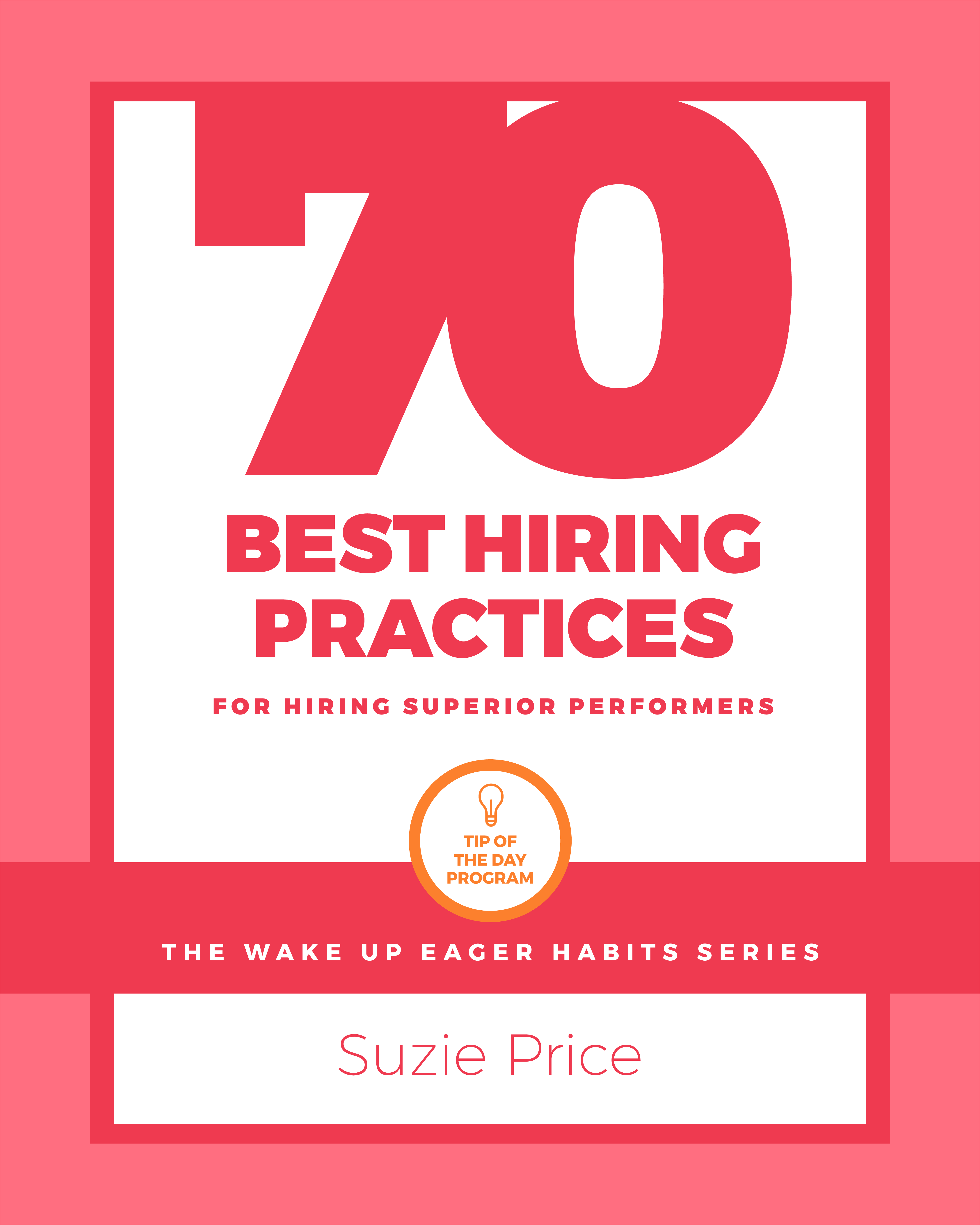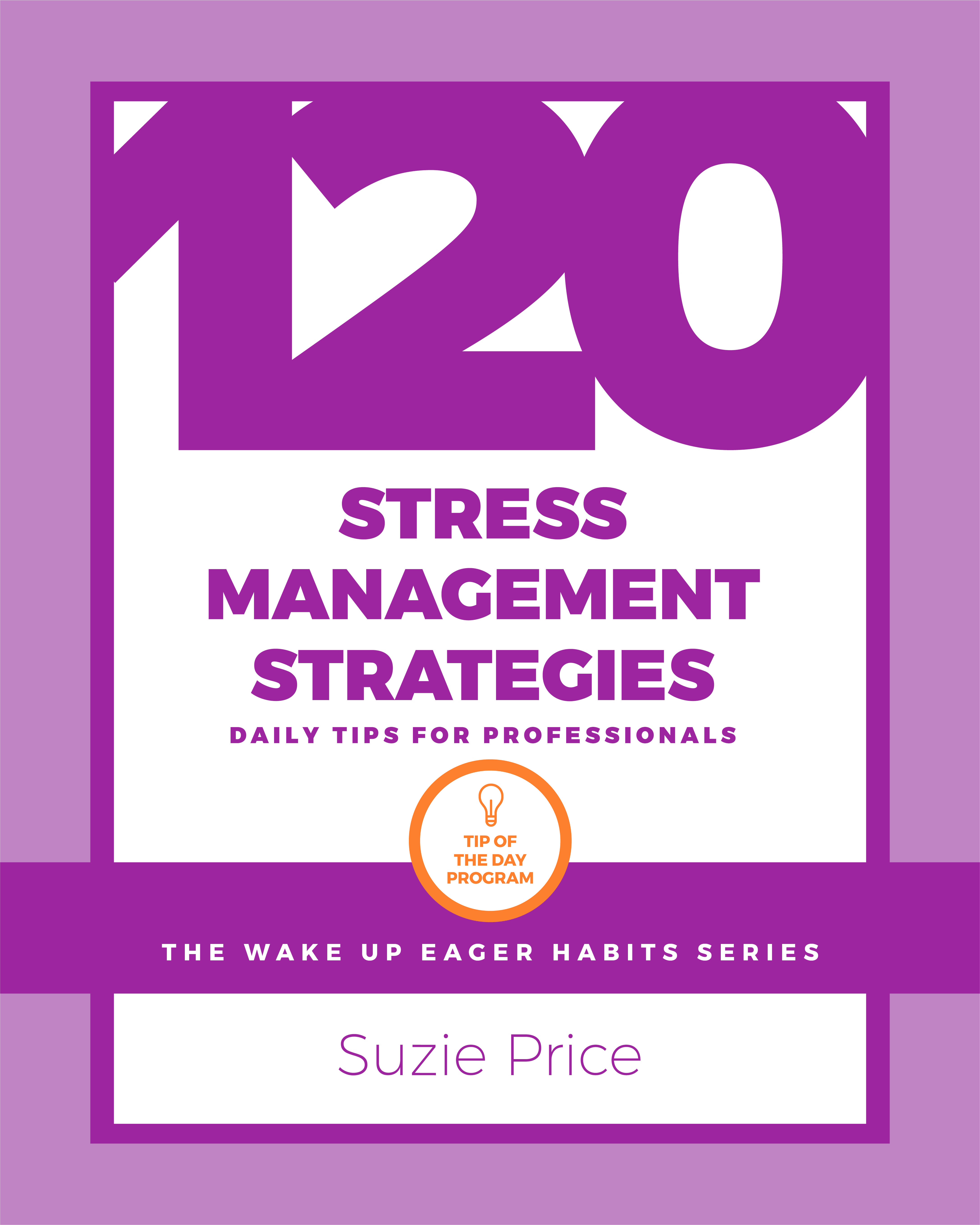The Know How You Need & the Tools to Get You There... Get Certified >

How To Overcome Fear
and Resistance to Feedback, Page 2
This is Page 2 of How to Overcome Fear and Resistance to Feedback where I am reviewing the four feedback acceptance steps that can be easily remembered with the acronym: H.E.L.P.
On this Page. I'll share more about the 2nd Step: E. Examining Why.
- H. How Important Feedback Is…
- E. Examining Why
- L. Learning Balance
- P. Pick What You Use
Step 2 – E. Examining Why

My exposure to feedback about my performance more than tripled when I started my business in 2004. I had many restless nights and anxious moments - all that feedback was causing inner angst and turmoil. I knew that getting feedback on everything I did as a Consultant was just all part of being a Consultant, and I wanted to do well. I knew I had to figure out how to overcome my fear and resistance to feedback if I would continue.
My assessment tools and a review of past experiences helped me examine why I reacted strongly to feedback. This insight helped me better understand my ‘sensitivity to feedback,’ which enabled me to manage my focus, self-talk, and responses gently and firmly.
- Insights from My Assessment Tools Around My Behavioral
Style: My natural very high Dominance and high Influence DISC Behavioral
Style (100% in both Styles) means that I most fear losing control (D) and
social rejection (I).
With this specific understanding and self-awareness, I better managed my reactions. I also started to pay more attention to, when I could, who I opened myself up to for feedback.
The Greatest
Fear for Each of the Four DISC Behavioral Styles:
How
strong the fear is depends upon how strong the
Style is for you and the circumstances you're
facing.
High D - Dominance – Fear of the Loss of Control
High I - Influence – Fear of Social Rejection
High S - Steadiness – Fear of Change
High C - Compliance – Fear of Getting It Wrong
- Insights from My Assessment Tools Around My Workplace
Motivators: My strongest Workplace Motivator is Theoretical/Knowledge, and my scores are far
above the population mean. This means I am passionately motivated and driven to become a Product Expert.
My Motivators Report Results helped me realize that I'm most energized when studying a topic and being seen as an 'Expert.' With this knowledge, I now understand why I can be susceptible to and get stressed out about feedback, especially if the input indicates I don’t know enough. That gets to me!
Greatest Area of
Stress for Each of the Six Motivators:
How strongly you will feel the stress for your top motivator will depend upon how strong the
motivator is for you, what other motivators are also strong, and the actual circumstances you are facing.
Theoretical /Knowledge - Inability to learn and build
expert status.
Utilitarian/Economic - Wasted resources, time, and
material.
Social/Altruistic – Decisions that are
insensitive to others.
Traditional/Regulatory - Opposition to their
beliefs.
Individualistic/Political - Actual or perceived diminishing/loss
of power.
Aesthetic – Too much objective focus &
inability to express feelings.
- My Past
Experience with Feedback: In my childhood, at school and in the
corporate world I only remember a couple of effective feedback-giver role
models. Not many people in my world have
known how to use use the 11 'Must-Have' Feedback Behaviors I talk about often in my
workshops and in articles.
My past experience with feedback was often with givers of feedback who were not all that effective in giving it. I seldom had the experience of effective feedback and so, was often defensive to ANY feedback.
Recommended Feedback Acceptance Action: Review your personal assessment results and background through the lens of: receiving feedback from others. Figure out where your own sensitivities lie. With this awareness you can begin to smartly manage your natural reactions more effectively.
Go to Page 3 for Feedback Acceptance Step Three- L. Learning Balance
I Share S.A.R.A. with 360 Feedback Participants

We all have our own natural responses when it comes to receiving feedback.
By analyzing our energy levels and internal narratives, we can tactically work on receiving feedback better.
Let’s use S.A.R.A. to walk through the different phases of receiving feedback.
😲 Shock: In this phase, you might respond with “What?! I don’t understand; this must not be right.”
😠 Anger: In this phase, you might be inclined to say “They’re just venting their frustrations!”
😑 Resistance: In this phase, you may want to say, “That’s just the way I am, take it or leave it.”
👍 Acceptance: In this phase, you’re finally ready to say, “How can I best use this feedback?”
Acceptance is where most of us would like to be, but we’re not always there.
Learning the phases you might experience when receiving feedback may help you move through them faster to get to where you want to be — growing!
LET'S TALK:
Contact us to schedule a Complimentary Consulting Call
or to ask questions about any of our Hiring,
Coaching, Training and Assessment services.
Go to How to Overcome Fear and Resistance to Feedback Page 3




